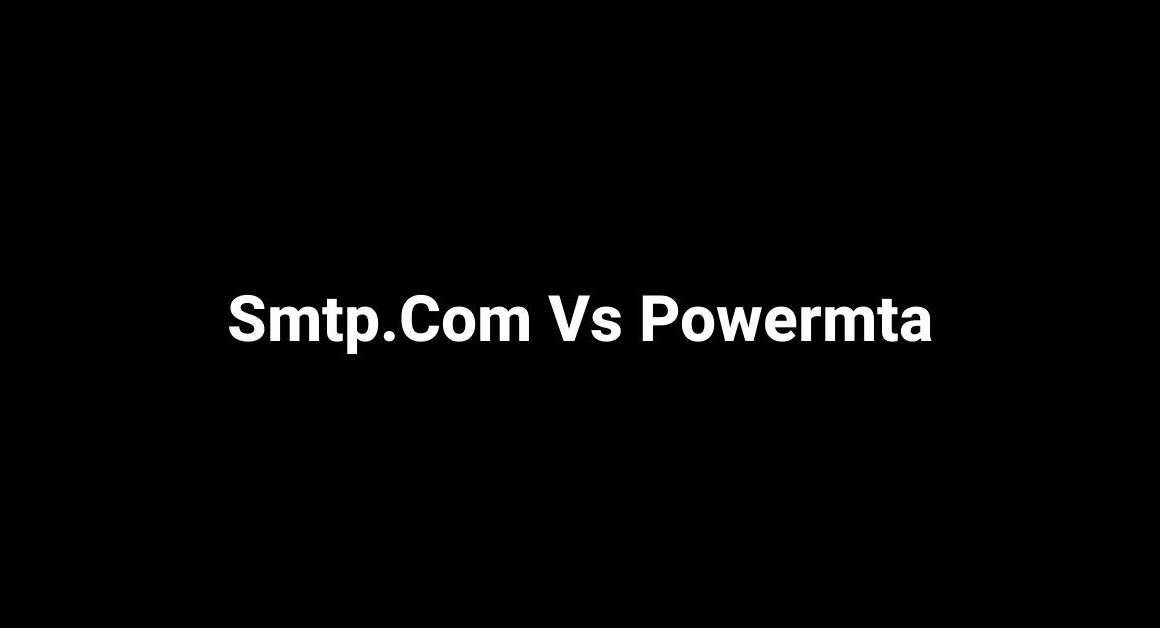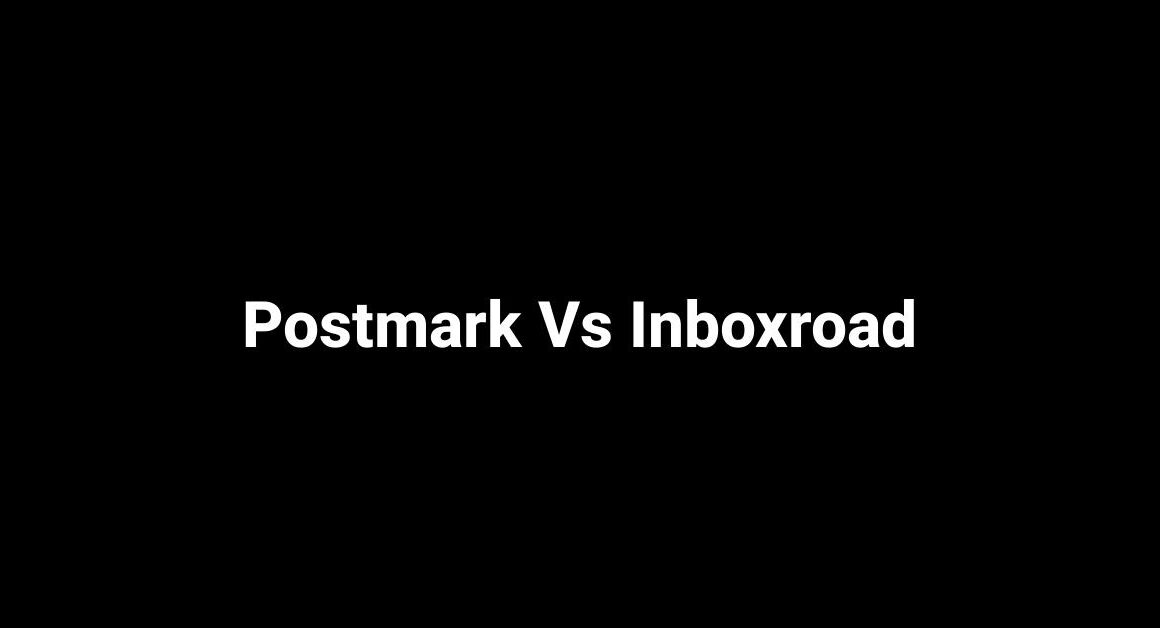Nick’s Review of Mailgun Vs Smtp2Go
Mailgun and SMTP2GO are two popular email delivery services that help businesses send reliable and scalable emails. In this blog post, we will compare and contrast the features and benefits of both Mailgun and SMTP2GO, so you can make an informed decision about which service is right for your business.
Let’s start with Mailgun. Mailgun is a cloud-based email service provider that offers a range of features to ensure the successful delivery of your emails. One of the standout features of Mailgun is its powerful email validation tool. This tool helps you ensure that the email addresses in your mailing list are valid and active, reducing the likelihood of bounced emails and improving your overall deliverability rate.
Another great feature of Mailgun is its intelligent email routing system. This system automatically detects email bounces and complaints, allowing you to easily manage your email deliverability and reputation. Mailgun also offers advanced tracking and analytics, so you can monitor the performance of your email campaigns and make data-driven decisions to optimize your results.
Now let’s turn our attention to SMTP2GO. Similar to Mailgun, SMTP2GO is a cloud-based email delivery service that focuses on delivering emails reliably and efficiently. One of the standout features of SMTP2GO is its robust infrastructure. With servers strategically located around the world, SMTP2GO ensures that your emails are sent from the closest server to the recipient, minimizing delivery latency and maximizing deliverability.
SMTP2GO also offers a dedicated IP address option, which can improve deliverability for businesses with high-volume sending needs. Additionally, SMTP2GO provides a user-friendly interface that makes it easy to set up and manage your email sending. The platform also offers detailed reporting and analytics, allowing you to track the success of your campaigns and identify areas for improvement.
Now that we’ve covered the key features of both Mailgun and SMTP2GO, let’s compare them side by side. In terms of deliverability, both services have excellent reputations and offer robust tools to ensure your emails reach the inbox. However, Mailgun’s email validation tool gives it a slight edge in terms of email list quality.
When it comes to scalability, both Mailgun and SMTP2GO offer the ability to send emails at scale. However, SMTP2GO’s global infrastructure and dedicated IP address option may give it the upper hand for businesses with high-volume sending needs or international customer bases.
In terms of ease of use, both services provide user-friendly interfaces and offer detailed reporting and analytics. However, some users may find Mailgun’s interface slightly more intuitive and easier to navigate.
In terms of customer support, both Mailgun and SMTP2GO offer responsive customer support teams that are available to assist you with any issues or questions you may have. However, some users have reported that Mailgun’s customer support is slightly more reliable and responsive.
Finally, let’s talk about pricing. Both Mailgun and SMTP2GO offer flexible pricing plans based on your email volume. SMTP2GO’s pricing is slightly more transparent and straightforward, with clear pricing tiers based on the number of emails sent per month. Mailgun’s pricing is based on a combination of email volume and additional features, which may make it slightly more complex to calculate your exact costs.
In conclusion, both Mailgun and SMTP2GO are excellent choices for businesses looking for reliable and scalable email delivery services. Mailgun’s strong email validation tool and advanced tracking capabilities make it a great option for businesses focused on email list quality and performance optimization. SMTP2GO’s robust infrastructure and dedicated IP address option make it a solid choice for businesses with high-volume needs or an international customer base.
Ultimately, the decision between Mailgun and SMTP2GO will depend on your specific business needs and priorities. It’s recommended to try out both services with their free trial options and determine which one best aligns with your goals and requirements.
Tina’s Review of Mailgun Vs Smtp2Go
Mailgun and SMTP2GO are two popular marketing software options for businesses. Mailgun has a rating of 4.3 out of 5 stars based on 145 user reviews, while SMTP2GO has a rating of 4.89 out of 5 stars based on 157 user reviews. Both software options have received positive feedback from users, but there are some differences in terms of features, ease of use, customer service, and value for money.
Mailgun is praised by users for its great API and ease of integration into different types of website and web app setups. It is also user-friendly and easy to implement, especially considering that it offers a free product. However, some users have complained about high bounce rates or emails going into spam. Additionally, there is no notification when an email bounces unless you check the logs, which are only retained for 15 days.
On the other hand, SMTP2GO users appreciate the helpful support team and the availability of different packages for all types of users. The software’s strict policies about the quality of its users are also seen as a positive aspect. However, one user faced a problem when infected users sent bulk emails to invalid recipients, which resulted in them being blocked. Furthermore, there is occasional delivery to spam folders, which is beyond the control of the user.
In terms of pricing, both Mailgun and SMTP2GO have a pricing range of $. However, specific pricing details are not provided in the text.
To get a better understanding of the software options, users can explore product demos and screenshots on the Software Advice website. There are also user ratings and reviews that provide insights into the overall quality, ease of use, value for money, customer support, and functionality of both Mailgun and SMTP2GO. The last review for Mailgun was written on October 3, 2023, while the last review for SMTP2GO was written on July 31, 2023.
When it comes to support and training, both software options offer similar options. Users can receive support through email/help desk, FAQs/forum, knowledge base, phone support, and 24/7 live representatives. Training is available in different formats, including in-person sessions, live online sessions, webinars, documentation, and videos.
Mailgun and SMTP2GO are both suitable for small, medium, and large businesses. They can be deployed on cloud platforms, SaaS, web-based systems, and various desktop and mobile operating systems.
In terms of popular comparisons, Mailgun is compared to Trello, Salesforce Sales Cloud, Mailchimp, and Microsoft 365. Users can view these comparisons and explore the alternatives to Mailgun on the Software Advice website.
In conclusion, Mailgun and SMTP2GO are both reliable marketing software options with positive user reviews. They have some differences in terms of features and user experiences, so it is important for businesses to consider their specific needs and requirements before making a decision. The Software Advice website provides detailed information, user reviews, and comparisons to help businesses make an informed choice.
Steve’s Review of Mailgun Vs Smtp2Go
SMTP2GO is a versatile and reliable way to deliver emails. They offer a range of features including bounce tracking, open tracking, SSL tracking links, reporting, worldwide servers, dedicated IPs, email testing, SPF, personalized DKIM, API integration, webhooks, Slack integration, unsubscribe automation, WordPress plugin, and archiving. They also provide 24/7 support through toll-free phone, ticket, and live chat. SMTP2GO offers a free plan with a money-back guarantee. They have a G2 rating and are GDPR compliant.
SMTP2GO compares itself with other SMTP services on its website, including SendGrid, Turbo SMTP, AuthSMTP, SMTP.com, SparkPost, Elastic Email, Mailgun, Mailchimp Transactional Email, and Postmark. It shows the features, locations, and limitations of each service.
Mailgun, for example, has servers in AWS, EU, US East, and West, but does not offer bounce tracking, open tracking, SSL tracking links, or email testing. SendGrid is available in the US, but does not have bounce tracking, open tracking, SSL tracking links, or email testing either.
SMTP2GO offers a free trial and has different pricing plans. The prices start at $79 per month or $948 per year. They also have a free plan available. The G2 rating and positive customer reviews show the reliability and customer satisfaction of the service.
SMTP2GO is a reliable and versatile option for delivering emails. The company offers a wide range of features and support options, making it easy for businesses to manage and track their email communications. The free plan and money-back guarantee provide added flexibility for businesses to test and evaluate the service. The comparison with other SMTP services on their website allows businesses to make an informed decision based on their specific needs and requirements. Overall, SMTP2GO is a reliable and user-friendly option for businesses looking to streamline their email delivery process.
Rick’s Review of Mailgun Vs Smtp2Go
In this blog post, we will be comparing two popular transactional email API services: Sinch Mailgun and SMTP2GO. These platforms are used by businesses to send transactional emails, such as order confirmations, password reset emails, and notifications. Let’s dive into the details of each platform to see how they compare.
Sinch Mailgun, formerly owned by Rackspace and now supported by Sinch, is known for its user-friendly interface and easy integration with CMS and frameworks. It offers a pay-as-you-go pricing structure, making it a cost-effective option for businesses that don’t need to send a large volume of emails. One of its standout features is its mailing list support, which is great for organizations that want to manage their own mailing lists. However, some users have mentioned that Mailgun lacks built-in templating features and that its customer service can be slow to respond.
SMTP2GO, on the other hand, is a New Zealand-based SMTP/Email API provider. It is known for its excellent deliverability and reliable email sending. SMTP2GO automatically connects to the closest server to ensure fast and efficient delivery, and its support team offers 24/7 assistance in multiple languages. One user highlighted the ease of setting up sub-accounts, as well as the platform’s success in delivering emails without any issues. While SMTP2GO does not have a built-in mobile app and some users mentioned limitations with the web management interface, overall, it is praised for its simplicity and cost-effectiveness.
When it comes to pricing, both platforms offer a range of plans to accommodate different needs. Sinch Mailgun’s pricing starts at $35 per month for its Foundation edition, with the Flex edition being offered for free. SMTP2GO’s pricing starts at $10 per month for its monthly or annual plan. Both platforms offer a free trial and a freemium version, and neither requires an entry-level setup fee.
In terms of alternatives, Sinch Mailgun is often compared to Mailchimp Transactional Email (Mandrill) and Twilio SendGrid. SMTP2GO is often compared to Everest (Return Path + 250ok). All of these alternatives have their own unique features and advantages, so it’s worth exploring them further to see which one best fits your specific needs.
When it comes to user ratings, Sinch Mailgun has a score of 7.7 out of 10 and is rated highly for its ease of use, set up, and free tier. SMTP2GO has a score of 9.5 out of 10 and is praised for its ease of use, multiple user support, and easy setup. While Sinch Mailgun has received mixed ratings for its customer service, SMTP2GO has consistently received positive ratings for its support.
In conclusion, both Sinch Mailgun and SMTP2GO are popular options for businesses looking for a reliable and cost-effective way to send transactional emails. Sinch Mailgun stands out for its user-friendly interface and mailing list support, while SMTP2GO is known for its excellent deliverability and support team. Ultimately, the best choice will depend on the specific needs and preferences of your business.
Beth’s Review of Mailgun Vs Smtp2Go
Summary:
In today’s digital age, communication plays a vital role in both our personal and professional lives. With the constant exchange of information through email, it is crucial to have a reliable email delivery service. Two popular options in the market for this are Mailgun and SMTP2GO. In this blog post, we will explore the features and benefits of both services to help you make an informed choice.
Mailgun and SMTP2GO are both email delivery services that ensure successful and reliable delivery of your emails. While they serve the same purpose, there are notable differences between the two. Let’s delve into the specifics.
Starting with Mailgun, this service provides developers with a powerful set of APIs for building email-related applications. It boasts of a user-friendly interface, making it easy to manage domains, email templates, and other settings. Mailgun offers advanced features such as email analytics, tracking, and event management, allowing users to gain insights into their email performance. Another advantage of Mailgun is its flexible pricing plans, accommodating businesses of all sizes.
On the other hand, SMTP2GO focuses on simplicity and ease of use. With SMTP2GO, users can enjoy fast and reliable email delivery without the need for complex configurations. This service offers features like email tracking, real-time reporting, and click event tracking. SMTP2GO’s interface is designed to be intuitive, allowing users to navigate effortlessly and ensure smooth email delivery.
When it comes to deliverability, both Mailgun and SMTP2GO have impressive records. They have established relationships and partnerships with major email providers, ensuring that your emails reach their intended recipients without landing in the dreaded spam folder.
Another crucial factor to consider is customer support. Both Mailgun and SMTP2GO offer responsive and reliable customer support channels. Whether it’s through email, live chat, or phone, you can expect helpful assistance whenever you encounter any issues or have queries regarding their services.
Pricing is often a significant consideration for businesses. Mailgun offers a tiered pricing structure based on email volume, ensuring that you only pay for what you use. On the other hand, SMTP2GO offers a more straightforward pricing model with monthly plans tailored to the number of emails sent. Ultimately, your choice will depend on your email volume and budget.
Integration capabilities are also worth considering. Mailgun seamlessly integrates with popular platforms like WordPress and Magento, allowing users to easily incorporate email functionality into their existing systems. Similarly, SMTP2GO offers straightforward integration options for various platforms, making it convenient for businesses to integrate the service into their workflows.
To summarize, both Mailgun and SMTP2GO offer reliable email delivery services with their own unique features and benefits. Mailgun appeals to developers with its powerful APIs and advanced features, while SMTP2GO focuses on simplicity and ease of use. Both services guarantee high deliverability rates and provide responsive customer support. When it comes to pricing, Mailgun offers flexible plans based on email volume, while SMTP2GO offers straightforward monthly plans. Consider your specific requirements and preferences to make the best choice for your business.
Jim’s Review of Mailgun Vs Smtp2Go
In this blog post, we will compare four popular transactional email software options: SendGrid, SMTP2GO, Mailgun, and Flowmailer. These tools are essential for businesses that need to send large volumes of emails and ensure their reliable delivery.
SendGrid offers a user-friendly interface that allows you to design and create emails easily. It provides real-time analytics and reports on important metrics like delivery rates and bounces. SMTP2GO is a comprehensive email service provider that ensures your emails are sent and tracked efficiently. It offers a redundant, multi-data center infrastructure to guarantee delivery even during internet outages.
Mailgun is a powerful email API service that simplifies email delivery and tracking for developers. It provides features like personalization, segmentation, and A/B testing to help you send relevant and targeted emails. Flowmailer is a transactional email management portal that is GDPR compliant and certified under ISO 27001. It ensures the security and integrity of your email communications and offers powerful API integrations.
Each of these tools has its own unique features and pricing plans. SendGrid offers a range of plans starting from a free tier up to enterprise-level plans. SMTP2GO offers different pricing tiers based on the number of emails sent. Mailgun’s pricing is based on the number of messages sent and received. Flowmailer offers flexible plans based on the number of emails and additional features required.
In terms of features, SendGrid offers A/B testing, automated IP warmup, and custom spam filters. SMTP2GO provides access monitoring, business hours support, and online chat support. Mailgun offers custom metadata, dashboard, and email personalization features. Flowmailer provides features like custom reverse DNS, custom spam filter, and multi-factor authentication.
All of these tools have integrations with popular platforms. SendGrid offers integrations with Salesforce Heroku and Microsoft Azure. SMTP2GO integrates with WordPress and Joomla. Mailgun offers integrations with popular platform Omnisend, infobip, and customer.io. Flowmailer integrates with various email APIs and services.
In conclusion, when it comes to transactional email software, SendGrid, SMTP2GO, Mailgun, and Flowmailer are all reliable options. The best choice for your business depends on your specific needs, budget, and preferences. Consider the features, pricing, and integrations offered by each tool to make the right decision for your business.
Dan’s Review of Mailgun Vs Smtp2Go
In this blog post, we will discuss why many Mailgun users are looking for alternative email marketing services and explore some suitable options. Mailgun is a popular choice for businesses to send transactional emails, as it offers features like API integration, speed, reliability, and the ability to handle various email functions efficiently. However, Mailgun discontinued its forever-free plan in early 2020, which has led users to seek cheaper alternatives.
Under Mailgun’s new plan, users are initially provided with 5,000 free emails per month for three months. After this period, users have to switch to a pay-as-you-go (PAYG) payment option, and the free plan remains suspended. The cheapest plan with all features costs $35 per month and has a limit of 50,000 emails. Many customers find this new policy unsatisfactory and are actively searching for Mailgun alternatives that offer similar features at lower prices.
We will now discuss some of the best Mailgun alternatives available in the market:
-
SMTP.com: SMTP.com is a platform that offers email relay, transactional email, and email delivery services at an affordable price. With decades of experience, SMTP.com is known for its reliability and is trusted by over 100,000 customers. It is easy to set up and can be seamlessly integrated into your business system.
-
DuoCircle: DuoCircle is a prominent email security provider that specializes in email security solutions. They offer services like email backup, advanced threat defense, and outbound SMTP to ensure inbox delivery with DKIM Signed mail. DuoCircle is a key player in the email security domain and offers protection against phishing scams, malware, and spoofing.
-
SMTP2GO: SMTP2GO is one of the oldest email delivery services and a popular Mailgun alternative. Its free plan allows users to send 1,000 emails per month, and they offer various starter and professional plans based on email sending limits. SMTP2GO is known for its intelligent and quick path routing across continents and offers features like email performance monitoring and handling reverse DNS, ISP throttling, DKIM, and blacklist monitoring.
-
Netcore Email API: Formerly known as Pepipost, Netcore Email API is a cloud-based transactional email service that offers different monthly plans to suit organizations’ needs and budgets. With over 50,000 customers, Netcore Email API helps businesses send critical emails on time and provides good analytics and deliverability.
-
Amazon SES: Amazon SES is a cost-efficient email sending service that allows users to send 62,000 emails per month for free. It charges a nominal fee for every 1,000 emails beyond the free limit. Amazon SES offers valuable features like dedicated IP addresses, reputation dashboards, content filtering, and integration with other AWS services.
-
SocketLabs: With over 15 years of industry experience, SocketLabs provides reliable email delivery services. They offer a basic plan that allows users to send up to 40,000 emails per month and provide secure, timely, and reliable email delivery, personalized customer support, and advanced analytics and reporting.
-
Sendinblue: Sendinblue is an email marketing solution that offers comprehensive features for small to medium-sized enterprises. It provides email and SMS marketing features, chat support, CRM, marketing automation, and audience segmentation. Sendinblue offers a lifetime free plan for up to 300 emails per day and also allows the option to send emails using third-party applications.
-
Postmark: Postmark is a reliable email server for transactional emails that focuses on deliverability and offers features like live delivery data and excellent customer support. It provides troubleshooting facilities, pre-built email templates, dedicated infrastructure for bulk emails, community libraries, and more.
-
SendGrid: SendGrid is a cloud-based email delivery service that provides features like SMTP API, SMTP Relay and Service, 24/7 support, ISP monitoring, IP whitelabeling, and email template engines. It offers customization, better email marketing functionality, and excellent scalability.
-
Mailchimp Transactional Email: Formerly known as Mandrill, Mailchimp Transactional Email offers reliability, great reporting, and debugging tools for transactional email management. While it is a bit more expensive than Mailgun, it provides better email marketing functionality, integration with Mailchimp templates, and scalability.
-
MailJet: MailJet specializes in sending, tracking, and delivering marketing and transactional emails. It offers features like template creation, pre-set templates, email segmentation, event tracking API, and sender reputation management. MailJet also has an easy-to-use online interface and an SMTP Relay API for integrating MailJet features into online apps and services.
In conclusion, there are plenty of Mailgun alternatives available in the market that offer similar features at lower prices. Organizations that were using Mailgun’s forever-free plan before its discontinuation can find suitable alternatives from the options discussed above. These alternatives offer a range of free plans and additional features that make them adaptable to different organizational needs and budgets.




